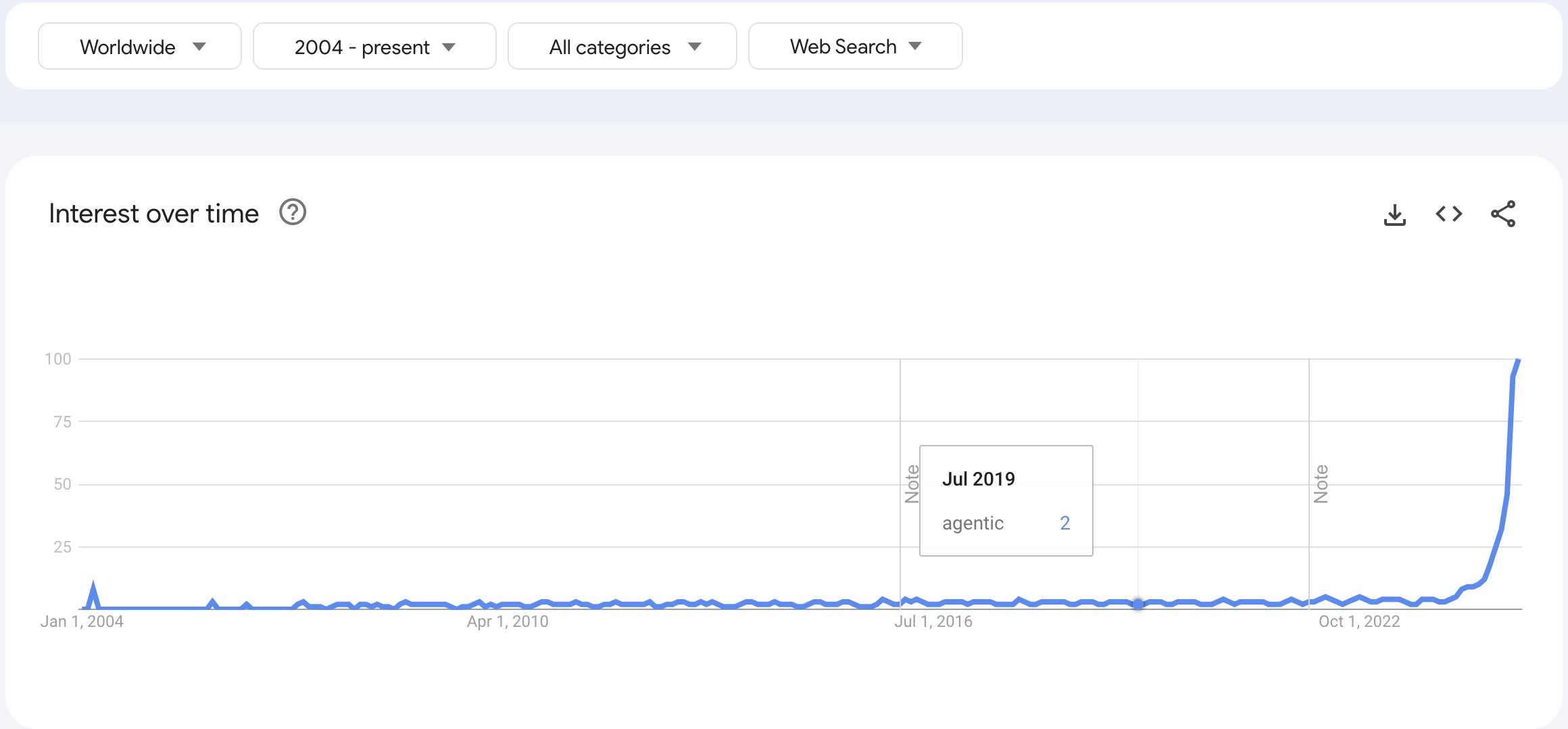
The 18 Best AI Platforms in 2025: Features, Use Cases, and How to Choose
Discover the top 18 AI platforms in 2025, their features, use cases, and tips on how to choose the right one for your business needs. Stay ahead in the AI lands...

Discover 2025’s key AI trends: the growth of AI agents automating tasks, and AI crews solving complex problems collaboratively across industries.
In recent years, “AI” has consistently ranked high in search traffic. This is due to its wide range of applications in industries like healthcare, finance, and education. More specific terms, such as “AI agent” and “AI crew,” are also gaining attention as advancements in AI continue to expand its uses.
A comparison of search trends shows distinct patterns. The term “AI” leads in search traffic because it has broad applications and is commonly used in various contexts. On the other hand, “AI agent” has seen significant growth in searches, especially since 2023. This increase is tied to the adoption of AI agents by businesses and developers. These agents are used for automation and specific tasks, like virtual assistants and recommendation systems, which are now key components of digital systems.
The term “AI crew” is a newer but growing trend. Searches for AI crews have risen in 2024-2025, reflecting interest in collaborative AI systems. These systems are designed to solve complex, multi-layered problems. This trend mirrors industry demand for integrated solutions in fields like logistics, healthcare, and urban planning.
Artificial Intelligence is advancing rapidly, and 2025 is expected to be a turning point for AI agents. These autonomous systems are designed to perform tasks with minimal human input, and they are predicted to significantly shape the AI industry in the near future. According to reports from industry experts, 2025 will be marked as the “year of profitability” for AI technologies, with AI agents being central to this shift.
AI agents use machine learning, natural language processing (NLP), and step-by-step reasoning to automate complex processes. OpenAI has emphasized their potential to transform both back-office operations and customer-facing tasks. These systems will take on responsibilities like scheduling, financial forecasting, and customer support with levels of efficiency that go beyond human performance.
The economic influence of AI agents is considerable. PwC projects that by 2030, these technologies could add between $2.6 trillion and $4.4 trillion to the global GDP. In 2025, the adoption of AI agents is likely to spread across industries such as finance, healthcare, and retail. Their ability to increase productivity, cut costs, and simplify operations will drive this change. Beyond improving their capabilities, businesses will also shift their focus from simply growing revenue to prioritizing profitability, as they recognize the cost-saving benefits of AI agents.
While 2025 will focus on AI agents, 2026 will introduce AI crews—systems that combine multiple AI agents to solve more complex problems. Unlike single agents, AI crews work together as unified teams, sharing data and coordinating tasks to achieve larger goals.
AI crews are ideal for fields requiring complex problem-solving, such as logistics, urban planning, and healthcare. For example, in smart cities, AI crews can manage traffic, energy use, and public safety in real-time, creating more efficient urban systems. In healthcare, they can oversee diagnostics, treatment plans, and patient monitoring, offering a more comprehensive approach to medical care.
The development of AI crews matches the growing demand for systems capable of managing interconnected challenges. Using distributed computing, edge technologies, and real-time data analytics, AI crews will transform workflows across various industries. Their ability to adapt to changing conditions and make collaborative decisions will drive innovation in 2026 and beyond.
The main AI trends for 2025 include the rise of AI agents automating repetitive tasks and AI crews enabling collaborative problem-solving. These innovations are driving efficiency, profitability, and new solutions across industries like healthcare, finance, and urban planning.
An AI agent is an autonomous system designed to perform specific tasks independently, often using machine learning and natural language processing. An AI crew, on the other hand, consists of multiple AI agents working together in a coordinated, role-based system to solve complex, multi-layered problems.
AI agents will increase productivity, reduce costs, and simplify operations by automating complex processes. Their adoption is expected to drive a shift towards profitability in businesses across various industries.
Yes, AI agents can operate independently or as part of an AI crew. In collaborative systems, individual agents take on specific roles while the AI crew coordinates their actions to achieve broader goals, combining autonomy with teamwork for optimal results.
Viktor Zeman is a co-owner of QualityUnit. Even after 20 years of leading the company, he remains primarily a software engineer, specializing in AI, programmatic SEO, and backend development. He has contributed to numerous projects, including LiveAgent, PostAffiliatePro, FlowHunt, UrlsLab, and many others.

Start building smart chatbots and AI tools with FlowHunt's no-code platform. Turn your ideas into automated Flows and enhance your business efficiency.

Discover the top 18 AI platforms in 2025, their features, use cases, and tips on how to choose the right one for your business needs. Stay ahead in the AI lands...

Discover which AI chatbot is best for your needs. Compare ChatGPT, Claude, Google Gemini, Perplexity, and FlowHunt with detailed analysis of features, pricing, ...

This year was all about expansion at FlowHunt. We built entire sub-products, added dozens of new components and integrations with hundreds of unique use cases. ...